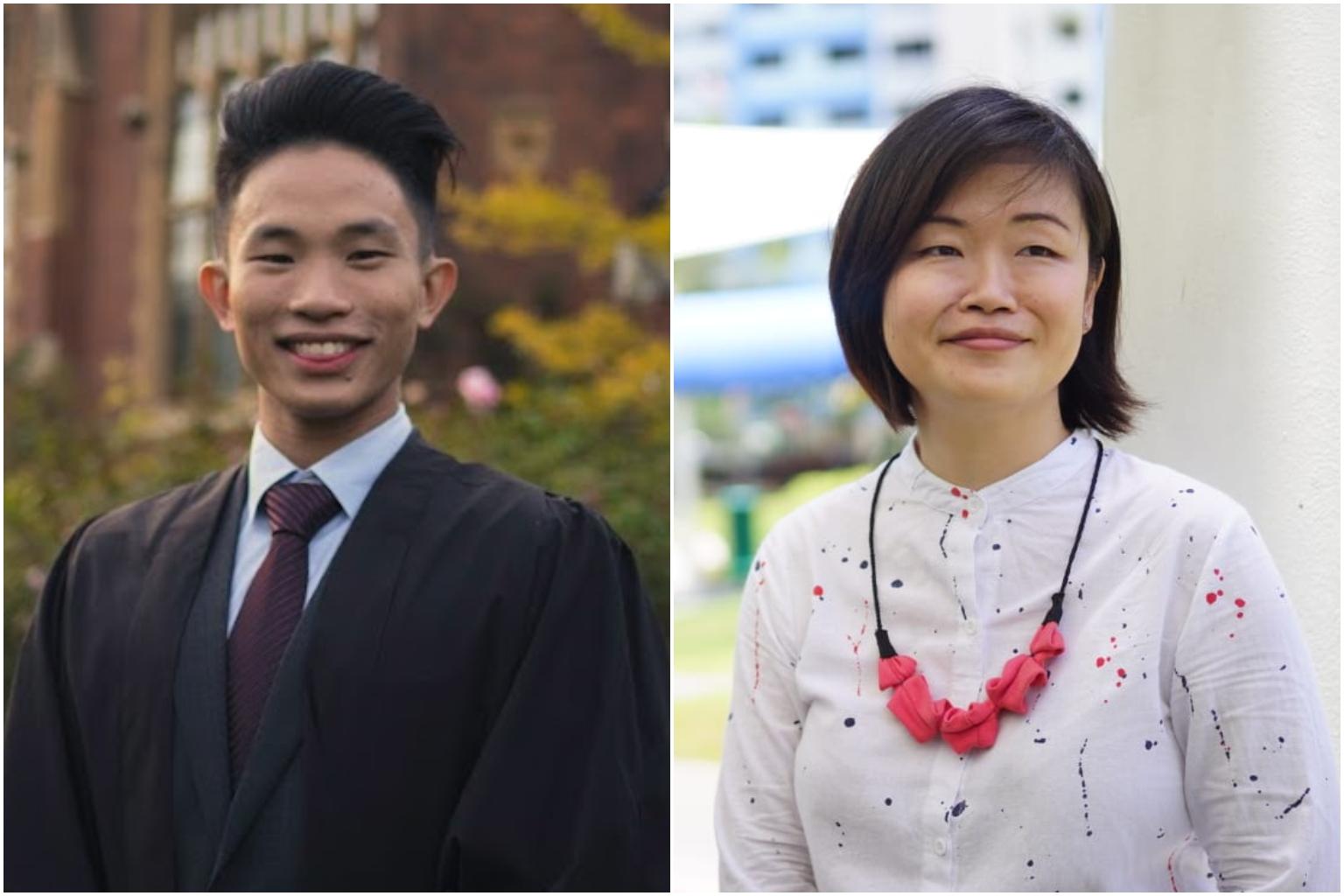Cambridge law grad, former IMH peer support specialist in new batch of Duke-NUS medical students
Sign up now: Get ST's newsletters delivered to your inbox

Although from different backgrounds, both Mr Isaac Ong, 24, and Ms Faith Wong, 40, have a love for medicine.
PHOTOS: ISAAC ONG, HUANG SHICONG
Follow topic:
SINGAPORE - One is a fresh law graduate from the University of Cambridge, while the other is a creative media professional turned peer support specialist at the Institute of Mental Health (IMH).
What Mr Isaac Ong, 24, and Ms Faith Wong, 40, have in common, though, is a shared love for medicine.
The two were among 72 individuals who joined Duke-NUS Medical School at a virtual White Coat Ceremony - a robing ritual for first-year medical students - on Saturday (Sept 18).
After returning from Britain last year, Mr Ong volunteered with the Covid-19 Migrant Support Coalition and healthcare charity HealthServe, helping migrant workers who needed urgent medical care.
"When I saw how Covid-19 had affected the community of migrant workers, I thought there was no better time for me to be involved on the ground," he said.
During his two-month stint at HealthServe, Mr Ong observed doctors and nurses on the front line helping patients despite language barriers and long hours. It left a deep impact on him.
"I looked up to my colleagues for the dedication they displayed every day. I also enjoyed working in a healthcare environment, and I felt like I could have a more direct impact helping the community as a doctor rather than a lawyer," Mr Ong said.
He hopes to specialise in emergency medicine after completing his course.
Mr Ong had paid about $40,000 a year for his three-year law degree. He decided to take a loan to finance his medical studies. He hopes his background in legal studies will help him take on the rigour of a medical degree and help him understand patients' needs better as a doctor.
Ms Wong, after graduating with an arts degree in 2013, had a successful career in the creative media industry, although she had struggled with bipolar disorder from the age of 16.
Ms Wong benefited from treatment at IMH and went into full remission in 2016, after which she joined a course to become a peer support specialist.
She said: "I felt that I had got a new lease of life, and I wanted to pay it forward by helping others who had been in the same position as me."
Over the last four years, Ms Wong has offered support to patients, sharing personal anecdotes to motivate them in their recovery journey.
"When our operations went online during Covid-19, I came under a lot of pressure keeping up with my patients and colleagues virtually. I realised that I could work well despite the stress, and this gave me the confidence to consider switching to medicine, where I could make a bigger difference," she said.
With the support of her friends and family, Ms Wong took the leap, spending many hours a day for six months preparing for the Medical College Admission Test.
After completing the course, Ms Wong hopes to set up Singapore's first emergency mental health respite care centre to provide treatment specifically for people undergoing mental health crises.
"As a doctor, I hope to treat not just the part of the body that is affecting the patients, but also caring for their state of mind and emotional needs," she said.
Coming from diverse backgrounds, including human resources, horse riding and allied healthcare, the new batch of medical students donned white coats and recited the Hippocratic Oath in the presence of their families and faculty members from Duke-NUS.
While the National University of Singapore (NUS) and Nanyang Technological University each has an undergraduate medical school, Duke-NUS is Singapore's only graduate medical school.
It started its first medical degree programme in 2007 and its Doctor of Medicine (MD) programme lasts four years. The MD programme costs $47,050 a year for Singaporeans.
At the end of the four-year programme, graduates will receive degrees jointly awarded by NUS and Duke University.
In its 15th cohort this year, the school admitted its first batch of students through the conditional admissions tracks, which are offered in partnership with a number of undergraduate programmes.
Students pursue their undergraduate studies in a discipline of their choice before returning after graduating to take up medical training at the school.
Six graduates are in the latest cohort through the initiative from NUS and the Singapore University of Technology and Design.

